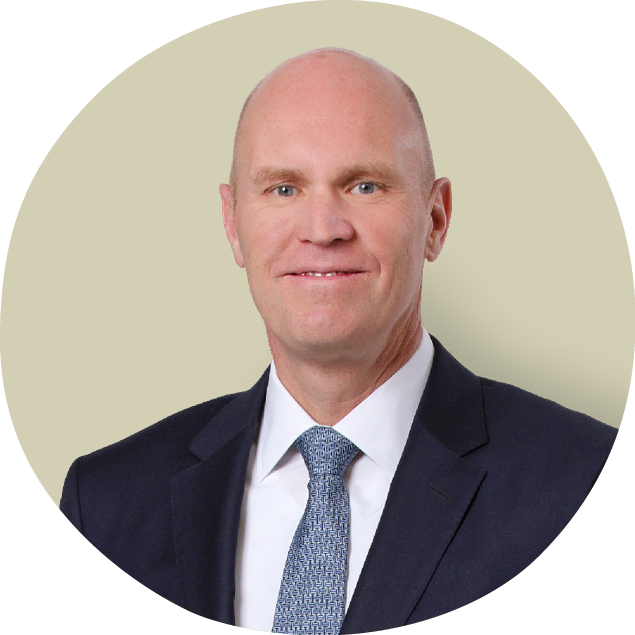Fund locations and fund domiciles: Focus on Liechtenstein, Luxembourg and Switzerland
What questions arise first when an asset manager wants to launch a new fund?
A fund serves to transform a service into a product and thus simplify access to this service. Therefore, when launching a fund, it is essential to understand the investment strategy and its implementation in its entirety. In addition, a comprehensive understanding of the target markets and customer segments must be obtained. From this, the corresponding expectations of the location as well as the required legal and fiscal framework conditions for structuring an optimal fund solution can be derived.
What is the significance of a fund's domicile?
A fund domicile must fundamentally fulfil the following aspects: excellent reputation, guarantee of political stability, transparency, infrastructure, expertise and the necessary capacities for the structure and operation of collective capital investments.
Based on this, the choice of domicile for an investment strategy in the form of a collective capital investment, taking into account the targeted investors and target markets, focuses on the following issues: flexibility in the design of the investment idea as a financial product, the know-how and quality of the service providers required for the operation of a collective capital investment, acceptance by the investors, and last but not least, the duration of the supervisory approval process of the supervisory authority.
Equally important are tax aspects - both for the actual taxation at the level of the collective investment scheme and the fund owners, as well as the use of double taxation agreements with regard to possible withholding taxes or their reclaim. Due to the constellation that the fund manager or initiator is often domiciled in Switzerland, but the product or the management company is domiciled in another country, the existence of a functioning cooperation between the supervisory authorities is another key factor.
Is "fund market" or "fund location" not necessarily the same as "fund domicile"? What are the differences - explained using the examples of Switzerland, Liechtenstein and Luxembourg?
A distinction must be made between the production location and the sales market. Of the more than approx. 12,000 collective investment schemes offered in Switzerland, approx. 20% are domiciled in Switzerland. The overwhelming share of open-ended, foreign collective investment schemes in the form of UCITS funds originates from Luxembourg. Liechtenstein is extremely interesting as a domicile for collective investment schemes, primarily in the area of alternative investments - both as UCITS and as AIFs, which can fully meet the needs of the Swiss market. For this reason, Switzerland is also the most important market for Liechtenstein funds. Switzerland applies comparably liberal framework conditions here. This allows domestic and foreign fund providers to benefit accordingly (from Switzerland's perspective).
For Swiss fund providers, Liechtenstein is the gateway to the EU: What are the advantages of launching funds in Liechtenstein compared to other EU fund centres?
The costs and duration of the regulatory approval process are key aspects, along with specific expertise and the ability to develop and offer targeted solutions for sophisticated investment needs. For a small economy, market access to the EU internal market plays an essential role, which is why this is always high on the agenda for Liechtenstein. Liechtenstein is particularly strong where high, specific expertise and the ability to develop and offer targeted solutions for demanding investment needs are required.
Switzerland has a large number of companies, including medium-sized and smaller ones, that develop and offer high-quality investment solutions, especially for institutional needs. The concentration in the area of non-traditional investments and pensions is above average. Liechtenstein can offer ideal solutions here to achieve the necessary scaling effects through access to the EU single market.
In addition, the following topics continue to be decisive for the success of a fund location: competence, willingness to perform, reputation, trust, guarantee and security, stability and private protection - this in the sense of long-term preservation of substance, increase in value as well as increasing sustainability and transparency.

At VP Fund Solutions we concentrate on asset classes or strategies in which we can create clear added value.
Dr Daniel Siepmann Head Fund Solutions
For which fund providers or components of the entire value chain does Liechtenstein offer which advantages?
The fund management companies on site offer all services and accompany the clients - from the initial conversation to the launch and subsequent launch of the fund product. Banking, legal and tax experts are consulted as required. In addition to risk management and ongoing administration, the management companies or fund management companies also offer active support in fulfilling the formal requirements for market entry in various countries of the European Economic Area (EEA).
Asset management is usually delegated, although more and more clients are setting up asset management in Liechtenstein themselves - this is because of the access to Europe in the area of MiFID activities. As already mentioned, the majority of asset managers with regard to the Liechtenstein fund industry are domiciled in Switzerland. Thus, a significant part of the Liechtenstein value chain is located in our most important partner, Switzerland.
What is the significance of innovativeness and innovative strength in connection with fund locations?
An ideal ecosystem, coupled with a stable economic and political system with modern infrastructure, fosters talent and innovation. Innovation in the sense of new ideas and inventions and their successful economic implementation in new products, services or processes is often due to an interplay between people, technology and business. Innovation can also consist of the transformation or abolition of undesirable or obsolete technologies, products or processes that are no longer effective. It also requires the willingness to change and to get rid of old habits.
Since the licensing of the first fund management company and the launch of the first collective investment schemes, Liechtenstein as well as Luxembourg and Switzerland have repeatedly demonstrated their agility and innovative strength in the fund sector. I believe we are strong in accepting legal and regulatory frameworks as a challenge to innovate and in viewing regulation as a strategic discipline. Standing still is not an option.
What makes Luxembourg in particular such an important fund location?
Fund assets under management in Luxembourg have only known one direction in recent years: upwards. An important milestone was the entry into force of the European Investment Directive in 1985 on the coordination of laws, regulations and administrative provisions relating to undertakings for collective investment in transferable securities - UCITS for short. Luxembourg was the first member state to transpose this directive into national law as early as 1988. Spurred on by constant demand, the fund industry has developed into a professional, innovative and high-performance branch of industry in recent decades. More than 30 years after the launch of UCITS, Luxembourg funds managed more than EUR 4 trillion in assets at the end of Q4 2022. EUR. In the case of AIFs, the figure is EUR 950 billion. For several years, the Grand Duchy has been the second most important fund location worldwide after the USA. On the other hand, in the market for fund management companies (FMCs) - the counterpart to the Swiss fund management companies - a consolidation of providers has continued to be observed in recent years, in addition to the establishment of new companies. This shows that Luxembourg continues to be an attractive domicile for the establishment and ongoing operation of an FMC - but also that FMCs need a critical size and a solid business model to remain viable.
In what direction have the provider structure and the authorised products developed in the various fund centres in recent years?
Alternative asset classes have managed to grow, succeed and thus deliver on their promise of being adaptable and resilient in recent years. This automatically leads to an increased demand for such investments. The consequence of this demand is a noticeable increase in providers - but also in service providers such as advisors, auditors and management companies that have specialised in these specific asset classes.
We have set ourselves the goal of creating value for our clients and their investors through our advisory services, the ongoing provision of our services and the availability of our know-how. For this reason, VP Fund Solutions has concentrated on asset classes or strategies in which we can create clear added value.
In line with general market developments, we have therefore successfully expanded and extended our offering in the area of alternative investments in recent years. In view of the strong and continuing high growth in illiquid investment forms, private market investments as well as the demand for so-called "liquid alternatives", the focus on alternative investment strategies will be continued and thus implemented by means of AIFs and UCITS funds.
How has Liechtenstein developed in the last few years since the introduction of AIFMD?
The fund industry in Liechtenstein has developed excellently, especially in recent years. After a constant decline in the number of providers until the end of 2015, mainly due to mergers, the market has stabilised and new providers have even been added. The industry has also developed impressively in terms of the number of funds - especially in the area of private label funds (PLFs). In 2022, for the sixth year in a row, there was a new record in the annual establishment of PLFs for initiators, most of which are domiciled outside Liechtenstein. This makes Liechtenstein one of the most important cross-border hubs for PLFs in Europe.


